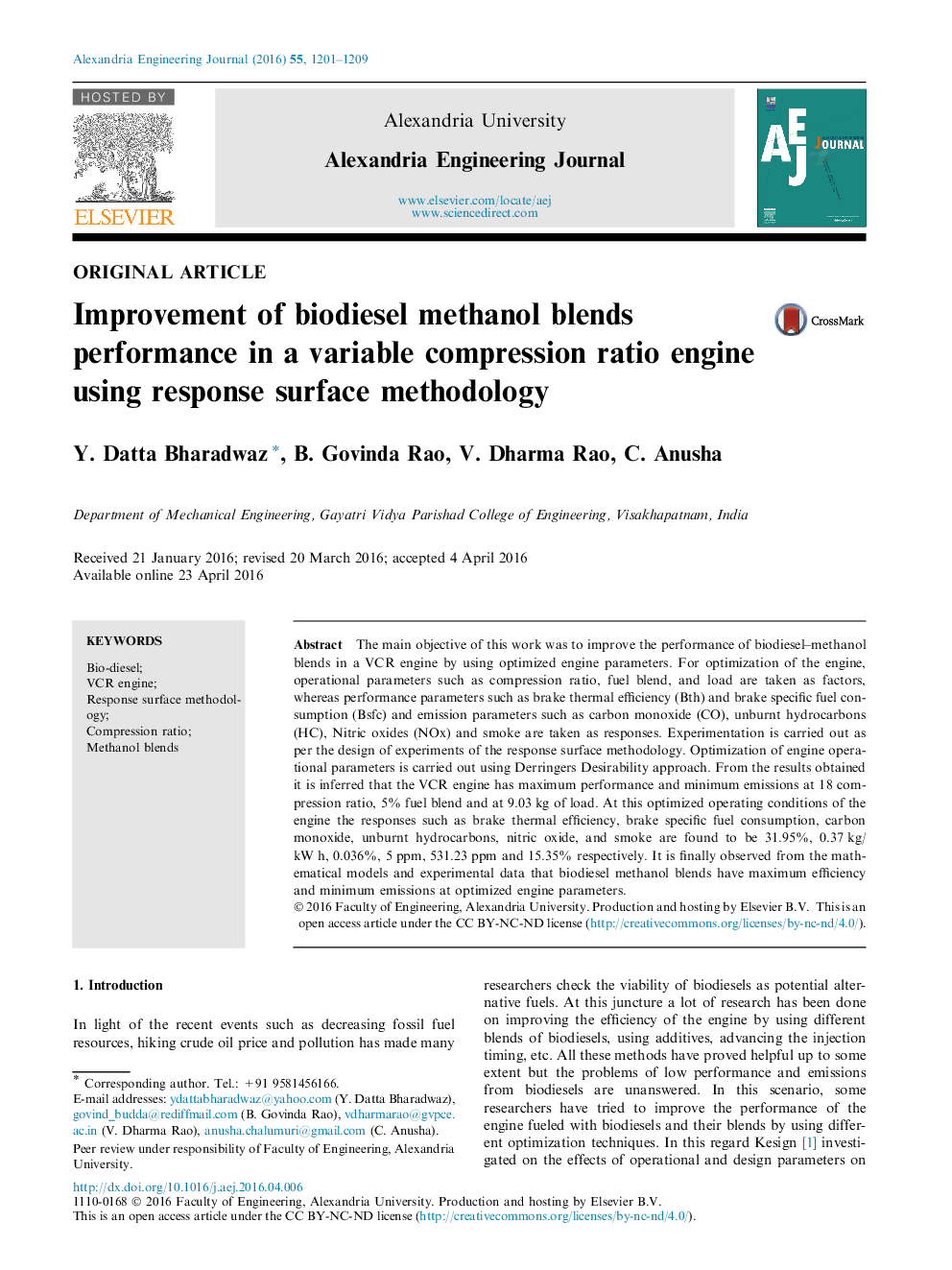| Article ID | Journal | Published Year | Pages | File Type |
|---|---|---|---|---|
| 815998 | Alexandria Engineering Journal | 2016 | 9 Pages |
Abstract
The main objective of this work was to improve the performance of biodiesel-methanol blends in a VCR engine by using optimized engine parameters. For optimization of the engine, operational parameters such as compression ratio, fuel blend, and load are taken as factors, whereas performance parameters such as brake thermal efficiency (Bth) and brake specific fuel consumption (Bsfc) and emission parameters such as carbon monoxide (CO), unburnt hydrocarbons (HC), Nitric oxides (NOx) and smoke are taken as responses. Experimentation is carried out as per the design of experiments of the response surface methodology. Optimization of engine operational parameters is carried out using Derringers Desirability approach. From the results obtained it is inferred that the VCR engine has maximum performance and minimum emissions at 18 compression ratio, 5% fuel blend and at 9.03Â kg of load. At this optimized operating conditions of the engine the responses such as brake thermal efficiency, brake specific fuel consumption, carbon monoxide, unburnt hydrocarbons, nitric oxide, and smoke are found to be 31.95%, 0.37Â kg/kWÂ h, 0.036%, 5Â ppm, 531.23Â ppm and 15.35% respectively. It is finally observed from the mathematical models and experimental data that biodiesel methanol blends have maximum efficiency and minimum emissions at optimized engine parameters.
Related Topics
Physical Sciences and Engineering
Engineering
Engineering (General)
Authors
Y. Datta Bharadwaz, B. Govinda Rao, V. Dharma Rao, C. Anusha,
